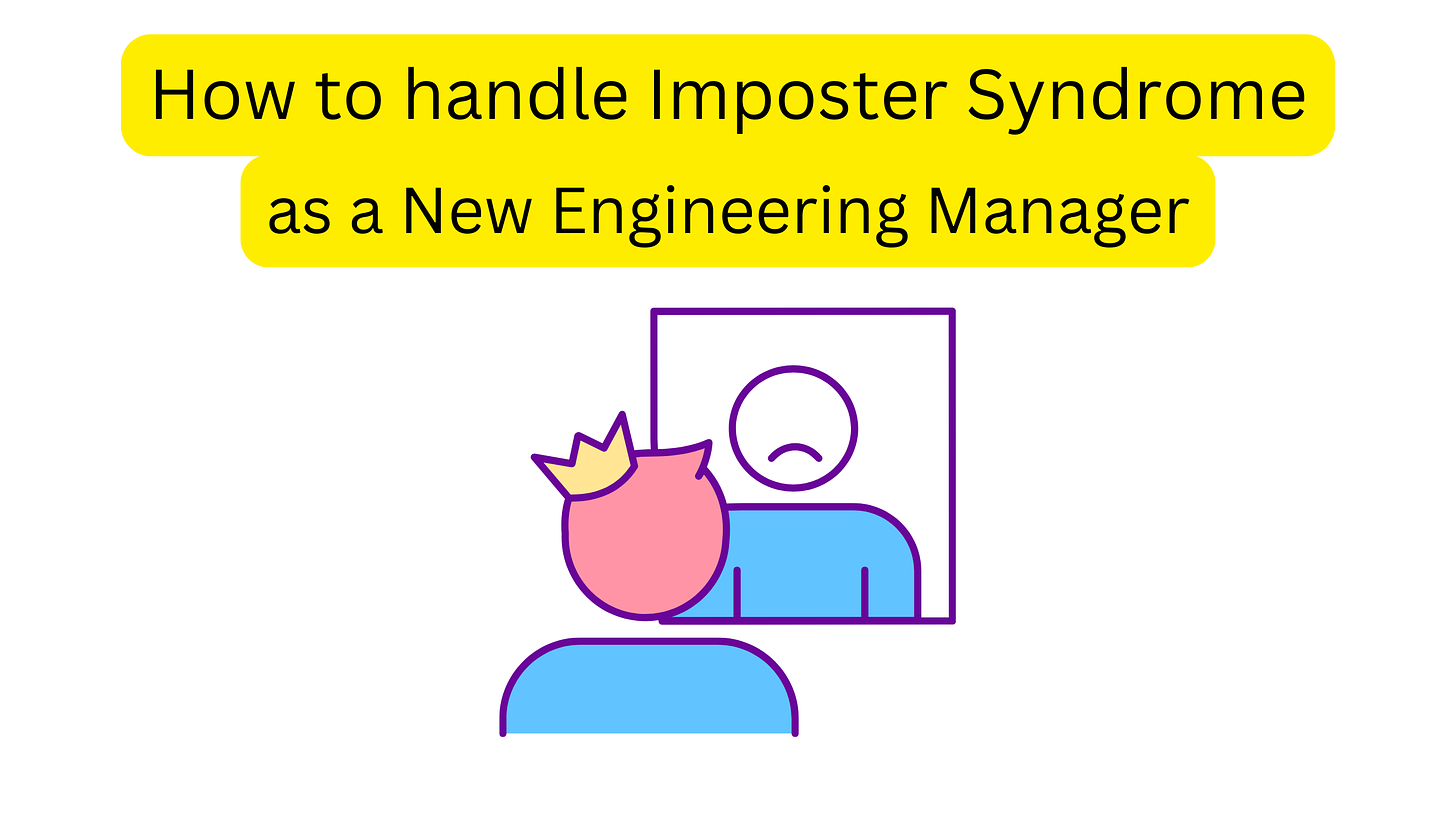How to handle Imposter Syndrome as a New Engineering Manager
Imposter syndrome can hold you back as a new Engineering Manager, but there are ways to overcome it.
"Am I really ready for this?" If you’ve ever felt this way, you’re not alone. That feeling is called imposter syndrome, and it’s more common than you think, especially when stepping into leadership roles.
Here’s how you can handle it and build confidence in your new role.
Consider supporting my work and subscribing to this newsletter.
As a free subscriber, you get:
✉️ 1 post per week
🧑🎓 Access to the Engineering Manager Masterclass
As a paid subscriber, you get:
🔒 1 chapter each week from the book I am writing “The Engineering Manager’s Playbook”
🔒 50 Engineering Manager templates and playbooks (worth $79)
🔒 The complete archive
Recognize Imposter Syndrome for What It Is
First things first—understand that imposter syndrome isn’t a reflection of your abilities. It happens when you step outside your comfort zone. Feeling like you don’t deserve the role? It’s actually a sign you’re growing.
Mindset Shift: Imposter syndrome means you’re stretching yourself. Even the most successful leaders have felt it at some point.
Reflect on Your Accomplishments
When imposter syndrome creeps in, remind yourself of what you’ve already accomplished. Think about the projects you’ve led and the challenges you’ve overcome.
Pro Tip: Write down your successes, no matter how small. Seeing them in black and white can be a powerful reminder that you’ve earned your place.
Seek Support from Peers and Mentors
Talking to someone who’s been through it can make all the difference. Find a mentor or connect with other engineering managers. Hearing their stories can reassure you that feeling uncertain is part of the journey.
Action Step: Reach out to a mentor or join an online community of engineering leaders. You’ll find plenty of people willing to offer advice and support.
Embrace a Growth Mindset
No one expects you to be perfect from day one. Like coding, leadership is something you learn over time. Every mistake is an opportunity to grow.
Mindset Shift: Focus on progress, not perfection. Embrace the learning curve—imposter syndrome loses its grip when you view mistakes as part of the process.
Set Realistic Expectations for Yourself
When you're new to leadership, it’s easy to feel like you need to prove yourself immediately. But trying to do too much will only lead to burnout.
Pro Tip: Set small, achievable goals and celebrate the wins along the way. You don’t need all the answers right away, and that’s okay.
Focus on Your Team’s Success
One of the best ways to take the pressure off yourself is to shift your focus onto your team. Your success as a manager is tied to their growth and achievements.
Action Step: Focus on helping your team solve problems and grow. You’ll naturally grow into your leadership role when the spotlight is on their success.
Reframe Negative Thoughts
Imposter syndrome often leads to negative self-talk like “I’m not good enough” or “I don’t deserve this role.” Learn to challenge these thoughts.
Pro Tip: Replace negative thoughts with positive ones. Instead of “I’m not qualified,” try “I’m learning every day and getting better.”
Keep Learning and Improving
Leadership is a skill you’ll continuously refine. The more you invest in your own learning, the more confident you’ll feel in your role.
Action Step: Read books, attend workshops, and ask for feedback from your team. Continuous learning helps you grow into the leader you aspire to be.
Useful links
👨💻 Become a better Software Engineer with CodeCrafters (use my partner link to get 40% off and build your own Redis, Git, Kafka and more from scratch).
🎯 Book a mock interview with me (System design or Behavioural & Leadership) to smash your next real interview!
👋 Let’s connect on LinkedIn!




